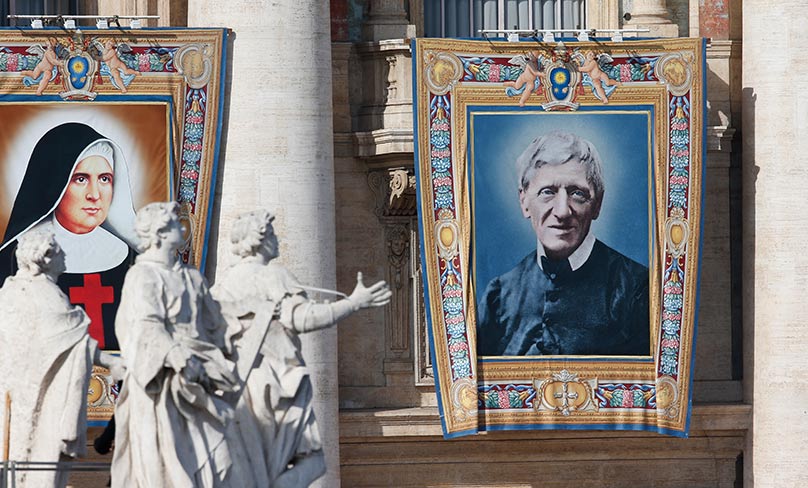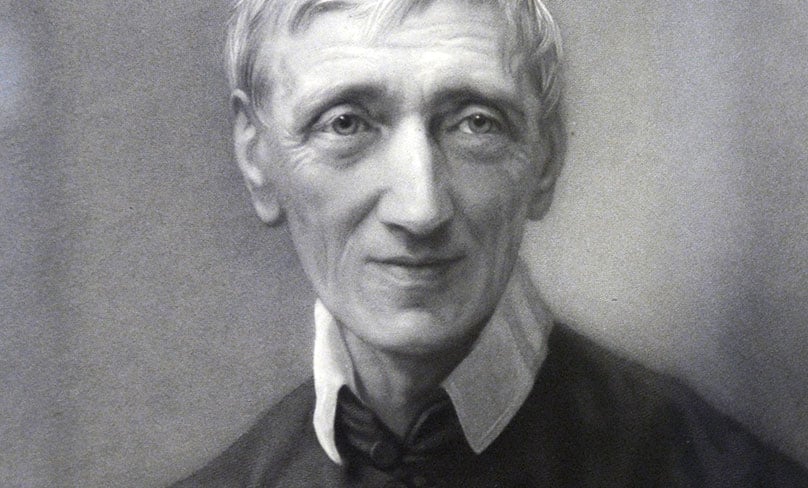
Saint John Henry Newman (1801-1890), one of our newest Saints, was an Oxford scholar and well-known for his conversion from the Church of England to Catholicism.
He is often held up as an example of how to intellectually and academically engage as a Catholic – and rightly so, thanks to his remarkable writings on the development of Christian doctrine and the ideals of a university.
Yet, throughout his life, it is worth recognising his pastoral work as a priest in his day-to-day encounters with parishioners and students and the impact he had on people from all walks of life who were striving to live as Christians in an ever increasingly secular world.
He countered the Enlightenment’s understanding of reason which reduced it to being the judge of all truth and which demanded scientific evidence as the benchmark of all knowledge.
Such “internalist” reasoning argues that faith in God is not possible without formal evidence.
This places too much weight on the learning of the individual and not enough on the truth-getting of the community, and most especially the light of divine revelation.
Newman argued that evidence is not the foundation for faith, rather, he defended the rationality of “simple faith” as a personal act, by which a person apprehends religious truths from others.
It also matches how we form our views in almost every area of life.
We ground our beliefs on a series of converging insights and arguments, no one of which on their own would normally lead us to conviction.
Newman draws his definition of faith from St Paul in his Letter to the Hebrews, who defines it this way, ‘Faith is the substance of things hoped for, the evidence of things not seen.’ (Heb 11:1)
“Faith,” (Paul) says, “is the substance” or realising “of things hoped for.” It is the reckoning that to be, which it hopes or wishes to be; not “the realising of things proved by evidence.”

Its desire is its main evidence; or, as the Apostle expressly goes on to say, it makes its own evidence, “being the evidence of things not seen.”
And this is the cause, as is natural, why Faith seems to the world so irrational, as St Paul says in other Epistles. Not that it has no grounds in Reason, that is, in evidence; but because it is satisfied with so much less than would be necessary, were it not for the bias of the mind, that to the world its evidence seems like nothing.’
For Newman, humility is a necessary condition for belief because it enables us to cultivate a childlike spirit.
Without humility one is incapable of believing in God because one establishes his own universe and closes himself or herself to any supernatural reality.
Pride closes a person within a limited sphere of rationality: the obedience of faith, however, still holds claim on a believer’s mind, which subjects itself to God Who reveals Himself and speaks through the Church.
For Newman, this is key! And faith, unlike theological propositions, is not a logical conclusion: rather it is a higher knowledge, which is not contrary to reason, but sits higher than that of science.
“If Revelation has always been offered to mankind in one way, it is in vain to say that it ought to have come to us in another. If children, if the poor, if the busy, can have true Faith, yet cannot weigh evidence, evidence is not the simple foundation on which Faith is built…this must be God’s order of things. Let us attempt to understand it. Let us not disguise it, or explain it away. It may have difficulties; if so, let us own them. Let us fairly meet them: if we can, let us overcome them.”
In Newman’s own life, he lived what he preached. In his journey toward full communion with the Catholic Church he understood what it meant to suffer for the truth and to seek the truth, no matter what.
He challenged his parishioners to be people of holiness, who “know their religion, who enter into it, who know just where they stand, who know what they hold and what they do not, who know their creed so well that they can give an account of it, who know so much of history that they can defend it.”
Newman preached that faith is a gift, and not a task, and his love for Christ in the Eucharist was the cornerstone of this faith: “O my God, when Thou dost condescend to suffer me to receive Thee, to eat and drink Thee, and Thou for a while takest up Thy abode within me, O make my heart beat with Thy Heart. Purify it of all that is earthly, all that is proud and sensual, all that is hard and cruel, of all perversity, of all disorder, of all deadness. So fill it with Thee, that neither the events of the day nor the circumstances of the time may have power to ruffle it, but that in Thy love and Thy fear it may have peace.”
May we, like our newest Saint, together with the Communion of Saints in Heaven, endeavour to approach Jesus in the Most Holy Eucharist in such a way as to let Him purify us of all that is defiled and so to fill us with Himself – the unshakeable foundation of a faith-filled life lived solely to bring glory to God.
